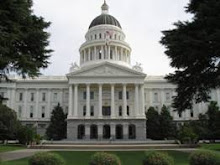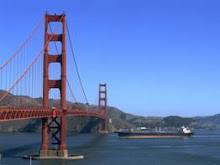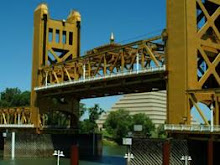THE AFTERSHOCKS OF SAN FRANCISCO’S RECENT ELECTION: PAID SICK LEAVE ORDINANCE GOES INTO EFFECT ON FEBRUARY 5, 2007
On November 7, 2006, San Francisco voters passed the “Paid Sick Leave Ordinance.” This ordinance is set to take effect on February 5, 2007. While many employers throughout California took an amused glance at the Ordinance, the aftershocks of this Employment Law earthquake are now being felt across the country.
The Epicenter: The City and County of San Francisco
Generally, the Ordinance provides that all employers with one or more full-time, part-time, or temporary workers employed within the City and County of San Francisco must provide those employees with paid sick leave coverage. Employers with ten or more employees must enable their employees to earn up to 72 hours of paid sick leave per year, while those with less than ten employees must provide up to 40 hours per year. An employee accrues one hour of sick leave for every 30 hours of work, up to his or her maximum allocation. All accrued leave can be used not only for the employee’s own illness, but for the illness of a parent, child, sibling, grandparent, grandchild, spouse, registered domestic partner, or other related individuals as broadly defined in the Ordinance. While employees who do not receive paid sick leave on equally or more favorable terms begin accruing paid sick leave on February 5, 2007, individuals employed after that date must wait for 90 days to begin accrual.
The Ordinance alters existing California law as it pertains to San Francisco employers. Section 233 of the California Labor Code, which governs the administration of sick leave, applies only to those California employers who choose to provide sick leave; however, it does not require employers to do so. Conversely, the Ordinance affirmatively mandates employers to provide sick leave to their San Francisco employees, and authorizes the enactment of oversight and enforcement procedures.
In addition, employers must post a notice informing employees of their rights in a “conspicuous place at the workplace or job site.” The posting must be in English, Spanish, Chinese, and any other language spoken by at least five percent of the employees at the workplace or job site. The City’s Office of Labor Standards Enforcement is charged with making available translated versions of the notice.
The Ordinance authorizes civil suits by the Office of Labor Standards Enforcement, the City Attorney, any person “aggrieved by a violation,” and those “acting on behalf of the public.” Recovery extends to all “legal or equitable relief as may be appropriate to remedy the violation,” including reinstatement, back pay, the payment of any sick leave unlawfully withheld, liquidated damages, injunctive relief, and reasonable attorneys’ fees.
The Aftershocks: Infecting Employers Statewide
While seemingly San Francisco specific, Employers will be surprised to know that San Francisco's Office of Labor Standards Enforcement takes the position that paid sick leave must accrue when any employee performs any work in San Francisco, even if only temporarily. Once the employee works 30 hours in San Francisco, no matter how long it takes them to do so, the employee accrues an hour of paid sick leave. Surprisingly, the employee is then entitled to only take paid sick leave when scheduled to work in San Francisco.
For example, assume an employee based in Sacramento travels to San Francisco for a morning meeting. Assuming the employee is in San Francisco for a total of three hours, the employer is required by the Ordinance to track that time to determine when the employee earns sick leave after 27 more hours of performing work in San Francisco. Other common examples requiring tracking include a delivery driver who spends 5 hours out of 8 hours delivering in San Francisco per day, a salesperson whose territory includes San Francisco, and an employee who attends a work mandated conference or convention in San Francisco. In each case, the employer must track and total the hours worked in San Francisco and then credit one hour's sick pay for each 30 hours of work within the City and County of San Francisco. In addition, the San Francisco Office of Labor Standards Enforcement takes the position these new rules apply to both non-exempt and exempt employees.
The burdens on employers without paid sick leave are obvious. Many employers who have some employees working periodically in the City or County of San Francisco may have to consider how to track their employees’ time while they are working in San Francisco. While legal challenges to this Ordinance are likely, it will took effect on February 5, 2007. If you have not accounted for this change, we have work to do!
skip to main |
skip to sidebar









UPCOMING BASHAM PARKER LLP PRESENTATIONS AND SEMINARS
April 16, 2009
Sacramento County Law Library
10:00 - 11:00 a.m.
813 Sixth Street, Sacramento, California 95814
Title of Session:
Review Session on Practical Considerations in Employee Terminations
Speaker:
Gary R. Basham, Esq., Partner
http://www.saclaw.org/classList.aspx?dy=16&mo=4
Sacramento County Law Library
10:00 - 11:00 a.m.
813 Sixth Street, Sacramento, California 95814
Title of Session:
Review Session on Practical Considerations in Employee Terminations
Speaker:
Gary R. Basham, Esq., Partner
http://www.saclaw.org/classList.aspx?dy=16&mo=4
Labels
- AB 1825 (1)
- Accessability (1)
- ADA (2)
- ADAAA (2)
- ADEA (1)
- Arbitration (1)
- ARRA (1)
- Baby WARN (1)
- Branick (1)
- Brinker v. Superior Court (1)
- Californias for Disability Rights (1)
- CFRA (1)
- COBRA (2)
- Disability (1)
- Discrimination (1)
- DLSE (1)
- DOL (2)
- Downey Savings and Loan Association (1)
- EEOC (1)
- EFCA (2)
- ERISA (2)
- Exempt (2)
- FEHA (1)
- FLSA (1)
- FMLA (1)
- GINA (3)
- Health Care Security Ordinance (2)
- Holidays (1)
- Layoffs (1)
- Legislation (1)
- Meal Periods (1)
- Mervyn's (1)
- Office Parties (1)
- OSHA (1)
- Overtime (1)
- PDL (1)
- PTO (1)
- Public Sector (2)
- Rest Breaks (1)
- Retaliation (1)
- San Francisco (2)
- SB 1608 (1)
- SB 28 (1)
- Settlement Agreements (1)
- Sexual Harassment (1)
- Stimulus Package (2)
- Text Message (1)
- Tips (2)
- Training (1)
- Unfair Competition (1)
- Uniforms (1)
- Union (1)
- Vacation (1)
- Wage and Hour (5)
- Wage Order (1)
- WARN (1)
- Whistleblower (2)
Blog Archive
-
►
2009
(13)
- ► April 2009 (6)
- ► March 2009 (4)
- ► February 2009 (2)
-
►
2008
(7)
- ► December 2008 (1)
- ► November 2008 (5)
-
▼
2007
(6)
-
▼
February 2007
(6)
- THE AFTERSHOCKS OF SAN FRANCISCO’S RECENT ELECTION...
- THE DLSE CLARIFIES POSITION REGARDING PARTIAL DAY ...
- The U.S. Department of Labor Determines Restaurant...
- California Supreme Court Applies Proposition 64 To...
- Wage & Hour: Companies not liable for subcontracto...
- Retaliation: A mixed bag of retaliation between th...
-
▼
February 2007
(6)


OFFICE LOCATIONS
Sacramento:
701 University Avenue, Suite 220
Sacramento, California 95825
Telephone: (916) 925-5850
Facsimile: (916) 925-5854
San Francisco Bay Area:
1850 Mt. Diablo Boulevard, Suite 530
Walnut Creek, California 94596
Telephone: (925) 309-6110
Facsimile: (925) 977-9345
701 University Avenue, Suite 220
Sacramento, California 95825
Telephone: (916) 925-5850
Facsimile: (916) 925-5854
San Francisco Bay Area:
1850 Mt. Diablo Boulevard, Suite 530
Walnut Creek, California 94596
Telephone: (925) 309-6110
Facsimile: (925) 977-9345
Basham Parker LLP


OUR GOALS
At Basham Parker LLP, exceeding expectations is our primary objective. We strive to meet this goal for every client, in every assignment, every day. It inspires us. It characterizes us. It separates and distinguishes us from the rest. Our team of attorneys is experienced, knowledgeable, and dedicated to serving our clients. Our staff is always professional, courteous, and helpful. We are trustworthy and reliable, and are committed to the highest ethical standards in all we do. We know we are here to serve our clients, and we genuinely appreciate the business.
OUR PRACTICE AREAS
Basham Parker LLP attorneys exclusively represent employers with all matters related to employment/workplace law, including, but not limited to:
Advice and Counsel/Litigation Avoidance (Including Employee Handbooks and Policy Review)
Affirmative Action Plans
Agency Claims and Charges
Alternative Dispute Resolution
Appeals
Litigation (Single and Multi-Plaintiff/Class Actions)
Management and Employee Training
These client services include such specialized practice areas as:
Affirmative Action Matters
Age
Disability Management
Employee Leaves
Employee Privacy Rights
Family Status and Pregnancy Issues
Harassment
Independent Contractors and Contingent Workers
Occupational Safety and Health
Race, Ethnicity, Color, and National Origin
Religion
Restrictive Covenants and Non-Compete Agreements
Retaliation
As an additional service to clients and colleagues, Basham Parker LLP provides current employment law-related information and updates through a variety of resources, including regularly published newsletters, special alerts, a Firm sponsored Blog, and an instructive website
Advice and Counsel/Litigation Avoidance (Including Employee Handbooks and Policy Review)
Affirmative Action Plans
Agency Claims and Charges
Alternative Dispute Resolution
Appeals
Litigation (Single and Multi-Plaintiff/Class Actions)
Management and Employee Training
These client services include such specialized practice areas as:
Affirmative Action Matters
Age
Disability Management
Employee Leaves
Employee Privacy Rights
Family Status and Pregnancy Issues
Harassment
Independent Contractors and Contingent Workers
Occupational Safety and Health
Race, Ethnicity, Color, and National Origin
Religion
Restrictive Covenants and Non-Compete Agreements
Retaliation
As an additional service to clients and colleagues, Basham Parker LLP provides current employment law-related information and updates through a variety of resources, including regularly published newsletters, special alerts, a Firm sponsored Blog, and an instructive website
OUR ATTORNEYS
Partners
Gary R. Basham, Esq.
E-mail: gary@bashamparker.com
Phone: (916) 925-5850 Ext. 523
Alden J. Parker, Esq.
E-mail: alden@bashamparker.com
Phone: (916) 925-5850 Ext. 522
Nancy L. McCoy, Esq.
E-mail: nancy@bashamparker.com
Phone: (925) 309-6110 Ext. 560
Associates
Kelley S. Kern, Esq.
E-mail: kelley@bashamparker.com
Phone: (916) 925-5850 Ext. 525
Derek C. Decker, Esq.
E-mail: derek@bashamparker.com
Phone: (916) 925-5850 Ext. 528
Aaron R. Jackson, Esq.
E-mail: aaron@bashamparker.com
Phone: (916) 925-5850 Ext. 529
Meagan Christiansen, Esq.
E-mail: meagan@bashamparker.com
Phone: (916) 925-5850 Ext. 527
Rachael G. Jung, Esq.
E-mail: rachael@bashamparker.com
Phone: (925) 309-6110
Gary R. Basham, Esq.
E-mail: gary@bashamparker.com
Phone: (916) 925-5850 Ext. 523
Alden J. Parker, Esq.
E-mail: alden@bashamparker.com
Phone: (916) 925-5850 Ext. 522
Nancy L. McCoy, Esq.
E-mail: nancy@bashamparker.com
Phone: (925) 309-6110 Ext. 560
Associates
Kelley S. Kern, Esq.
E-mail: kelley@bashamparker.com
Phone: (916) 925-5850 Ext. 525
Derek C. Decker, Esq.
E-mail: derek@bashamparker.com
Phone: (916) 925-5850 Ext. 528
Aaron R. Jackson, Esq.
E-mail: aaron@bashamparker.com
Phone: (916) 925-5850 Ext. 529
Meagan Christiansen, Esq.
E-mail: meagan@bashamparker.com
Phone: (916) 925-5850 Ext. 527
Rachael G. Jung, Esq.
E-mail: rachael@bashamparker.com
Phone: (925) 309-6110



